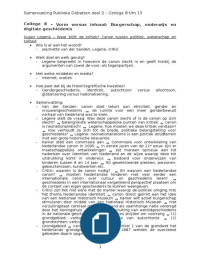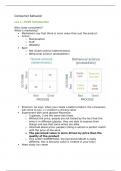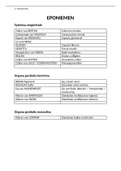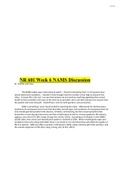Summary
Summary A-Level OCR Hamlet A* revision bundle
- Course
- Institution
This bundle includes: * A 13 page revision document containing all the necessary information for the characters. This is organised in a highly useful table. The characters in the document include; King Hamlet/the Ghost, Hamlet, Claudius, Gertrude, Ophelia, Polonius, Laertes, Rosencrantz and Guilde...
[Show more]












